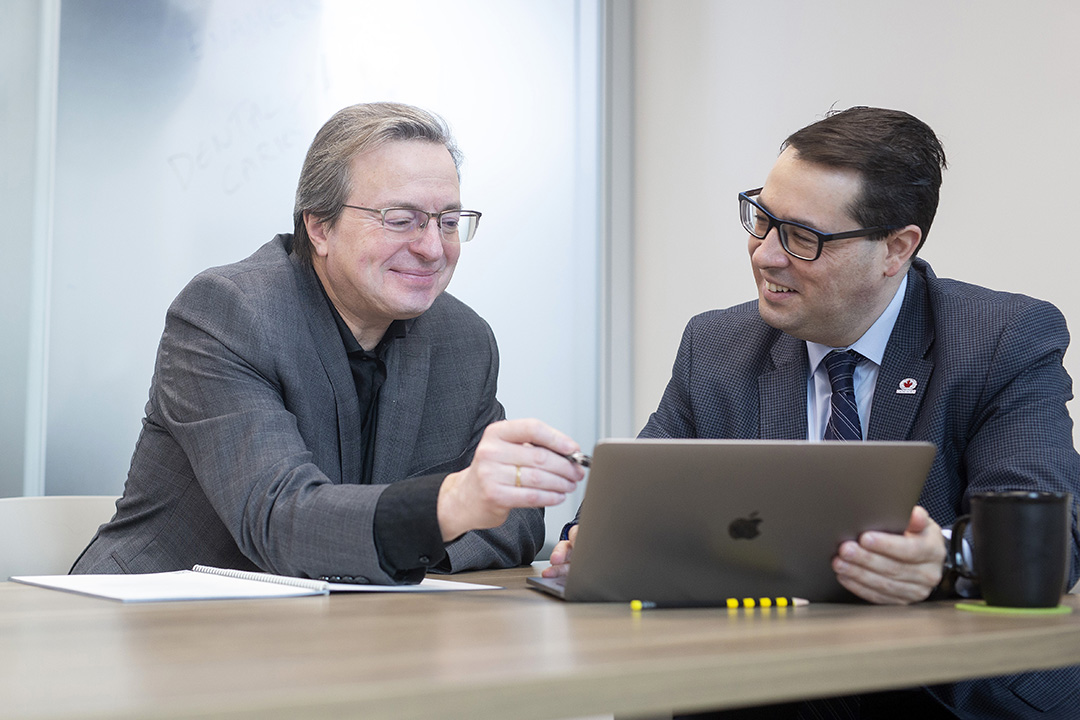
USask College of Dentistry introduces first PhD program
For the first time ever, the College of Dentistry will be offering a PhD program.
By Jenna FraserOn February 20, University Council approved the first dentistry graduate program at the University of Saskatchewan (USask). The PhD in Precision Oral and Systemic Health, or POSH, is designed to graduate students with the skills required to become highly qualified researchers and policy makers, capable of designing and conducting research that impacts areas of oral health, precision health, and public and population health.
“This milestone is the result of more than a year of hard work by a very dedicated team, and I’d like to extend a special thanks to Dr. Walter Siqueira (DDS), associate dean academic, and Dr. Petros Papagerakis (DDS), associate dean research, who spearheaded this work,” said Dr. Doug Brothwell (DMD), dean of the College of Dentistry.
“Over our tenure as a college we have built a strong reputation for graduating some of the top clinician dentists. This is an exciting time for our college as we move forward and establish our reputation as a research-intensive college.”
The implementation of the PhD program is an achievement for the college, which is in the midst of a multi-year transformation that places emphasis on research performance and productivity, amongst other priorities.
Over the past three years, the college has made major strides in increasing research capacity by expanding its faculty complement to include five members with PhDs, recruiting three internationally recognized researchers, and now implementing the POSH PhD. The introduction of this program will create an enriched and research-intensive environment in the college, which will develop from mentorship and collaboration amongst students within and beyond their research teams.
Brothwell said the PhD program will focus on the integrative “body to mouth” concept, and given that the program is not restricted to individuals who have graduated from a dental college, there is an opportunity to attract students from a wide variety of disciplines. The “body to mouth” concept will provide students the opportunities to focus on precision techniques and approaches, or translational oral and public health approaches.
As a direct result, research topics in the program are expected to range across the spectrum of biomedical, precision health, public health, public policy, Indigenous and priority population health, and bioengineering, while remaining connected to oral health.
The college will accept the first cohort of students in September, starting with a projected enrolment of seven students, growing to 28 students after four years. Brothwell said the PhD program has been set up in a way that the benefits will be wide-ranging across the college. PhD students and supervisors will contribute to cross-program activities, will provide mentorship to junior students in the college, and will ultimately act as role models for those considering pursuing PhD studies.
“This is the start of a new era for the college,” said Brothwell, “one where we are the dental school that the world needs.”

